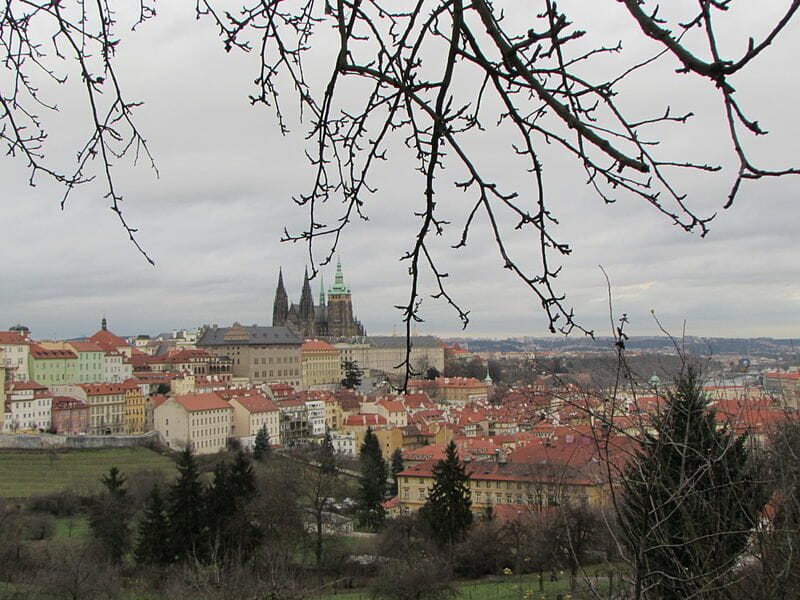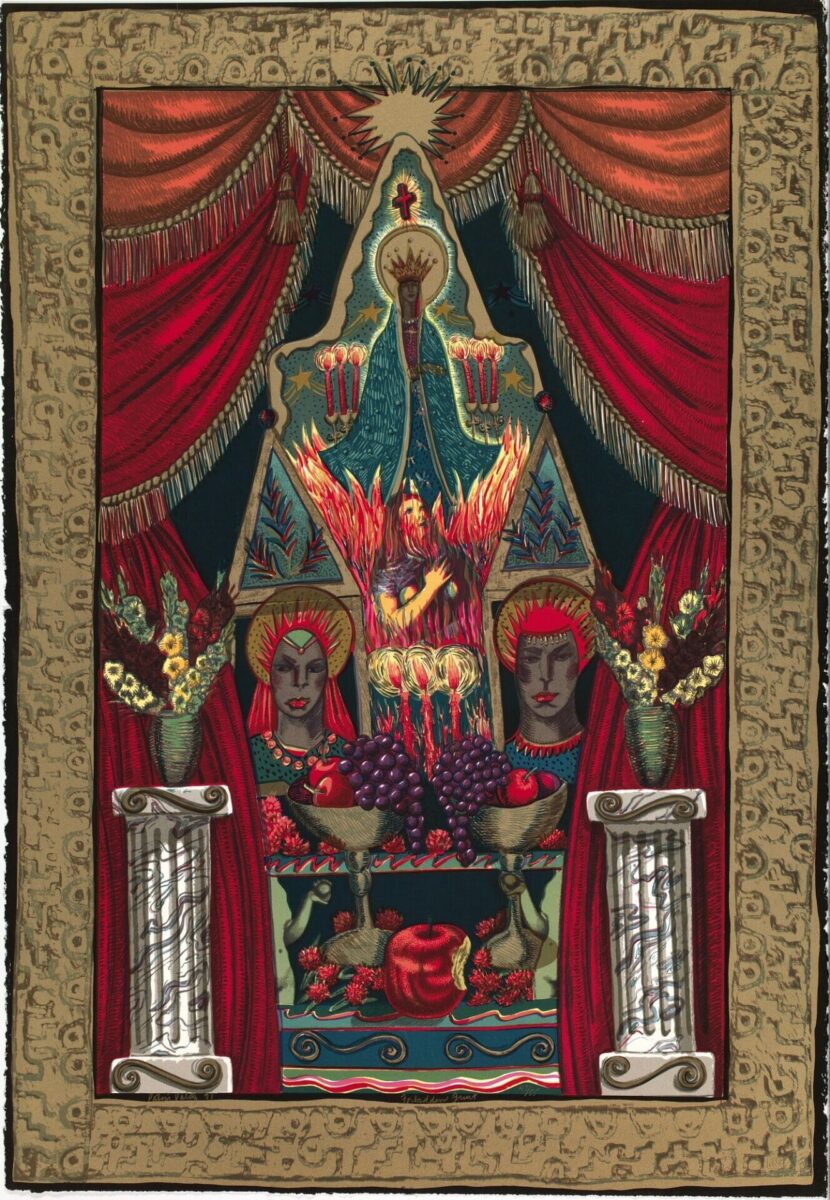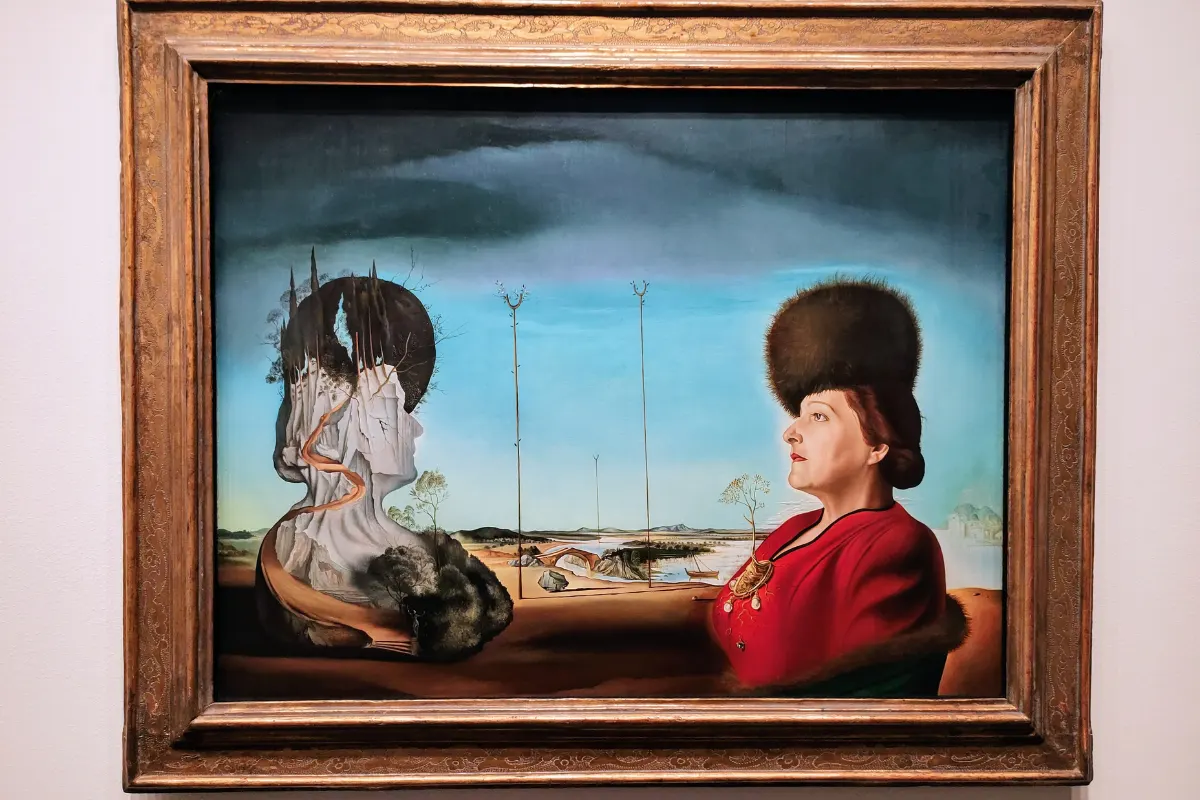
Poem of the Mountain | Marina Tsvetaeva on the end of love
Author
Year
Format
Length
Original language
In a letter to her Czech friend Anna Teskovà, written in 1925, when she was about to move to Paris, Marina Tsvetaeva described the locations of her stay in Prague as the scenes of her happiness. Among them are the villages of Mokropsy and Vsenory where she lived, and Petrin Hill. The latter is the hill to which her Poem of the Mountain refers. Written in ten parts, almost exclusively in quatrains, the Poem of the Mountain is about love and sorrow. First published in the Czech magazine Versity in 1926, the poem had been in the author’s mind for three years. In 1923 she noted in her manuscripts that “a poem of detachment” was necessary.
A shudder: off my shoulders
with this mountain! My soul rises.
Now let me sing of sorrow which
is my own mountain

Singing of sorrow from the top of the mountain
In her fourth album, High as Hope, Florence Welch chooses The End of Love as the title of one of the tracks. The song describes how In her fourth album, High as Hope, Florence Welch chooses The End of Love as the title of one of the tracks. The song describes how a love story ended as one of the two lovers let it sink. Curiously, a mountain is mentioned there as well. It is the mountain from which Joshua comes down to reveal his love to the singer and then to haunt her again. So, the mountain here is the symbol of the unattainable height of love. That means, here, a safe place with respect to the flooded land of the relationship. Instead, in Tsvetaeva’s poem, the mountain is the icon, a tutelary deity of the love story she is now dismissing.
Not Parnassus, not Sinai,
simply a bare and military
hill. Form up! Fire!
Why is it then in my eyes
(since it was October and not May)
that mountain was Paradise?
Poem of the Mountain: cursing after loving
Although she had been married to Sergej Efron since 1912, he is not the subject of this poem. Nor is he in the Poem of the End, the ideal continuation of the Poem of the Mountain. They are both dedicated to Konstantin Rodzevič. He too, like Efron, was a Russian who emigrated to Prague after the defeat of the White Army. The mountain is their love’s birthplace, the silent spectator of their lives, the keeper of their promises. And, when their love is over, it becomes the sad witness of their separation.
The mountain mourned for what is now blood
and heat will turn only to sadness.
The mountain mourned. It will not let us go.
It will not let you lie with someone else!
The poet is destined to accept a painful change. The rugged rocks and craters she had taken as a metaphor for her tragic love become the seat of prosaic marriages. At this point, the author hopes that the mountain will punish this sacrilege, ruining the lives of those The poet is destined to accept a painful change. The rugged rocks and craters she had taken as a metaphor for her tragic love become the seat of prosaic marriages. At this point, the author hopes that the mountain will punish this sacrilege, ruining the lives of those who will offend its memory. This procedure is not new to the Russian poetry of the time. Anna Akhmatova too, in those years, was casting love curses through her poetry. Akhmatova’s anger is addressed to her lover in person in You thought I was that type. Her curse consists of swearing to the man who left her that she’ll never return. But Tsvetaeva does not want to be outdone: the last lines of the poem immortalize her as Rodzevič’s only lover – at least in her memory.
and though life’s beggared now and
narrowed into how things are
still I cannot see you joined to
anyone: a revenge of memory.
Tag
Buy a ☕ for Hypercritic









